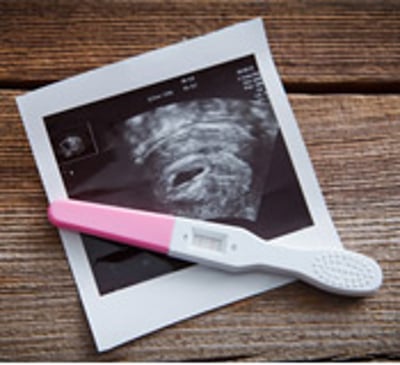FORCE's eXamining the Relevance of Articles for You (XRAY) program looks behind the headlines of cancer news to help you understand what the research means for you.
XRAY is a reliable source of hereditary cancer research-related news and information.
Learn more about the XRAY program
Relevant for: previvors, In portal: Breast Cancer
Relevance: Medium


Strength of Science: Medium


Research Timeline: Human Research


Study : Breast cancer risk model updated for average risk women with genetic, lifestyle and environmental information
Relevance: Medium


Strength of Science: Medium


Research Timeline: Human Research


Most relevant for: Women at average risk for breast cancer
A number of factors are known to increase breast cancer risk, but some of these factors have not been included in models to predict breast cancer risk. This study looks at an updated model that includes some of these factors, such as genetics, smoking, and drinking. The goal of the model is to give women a more individualized breast cancer risk assessment. (6/29/16)
Read More
Relevance: Medium-High


Strength of Science: Medium-High


Research Timeline: Human Research


Study : Dense breast notifications are informative but hard to read and understand
Relevance: Medium-High


Strength of Science: Medium-High


Research Timeline: Human Research


Most relevant for: Women with dense breast tissue on mammograms
Some states offer women dense breast notifications that are meant to explain that dense breasts are risk factors for breast cancer and can hide cancer on mammograms, and to identify appropriate supplemental screening options. But recent research found that this information is often not easy to read or understand, which questions the usefulness of the documents. (6/7/16)
Read More
Relevance: Medium


Strength of Science: Medium


Research Timeline: Human Research


Study : Do BRCA mutations affect fertility?
Relevance: Medium


Strength of Science: Medium


Research Timeline: Human Research


Most relevant for: Women with a BRCA mutation who want to become pregnant
Age affects fertility. As women age, their ovaries release eggs that are not as healthy as those released in younger women. Fewer eggs are released each menstrual cycle as women age, making it harder for older women to become pregnant. Are women with BRCA mutations less fertile? Previous research suggested that BRCA mutations might affect women's fertility as she ages. A recent study found that BRCA1 mutation carriers may have slightly lower fertility than women without the same mutation, but more research is needed before this finding is useful for medical decision-making. (5/24/16)
Read More
Relevance: Medium


Quality of Writing: Medium-Low


Article : New York Times report demonstrates need for genetic counseling, but doesn’t give the whole story
Most relevant for: People diagnosed with breast cancer
A New York Times report discussed how genetic testing could provide “grim data” without guidance for patients. While this is a valid concern, this report does not sufficiently emphasize certain important issues regarding genetic testing, particularly the need for genetic counseling by a health care provider with expertise in genetics before and after genetic testing. (4/5/16)
Read More
Relevance: Medium-High


Strength of Science: Medium


Study : Do women who eat a high fiber diet have a lower risk of breast cancer?
Most relevant for: Adolescent and young adult women
Some researchers believe that dietary fiber may decrease breast cancer risk by lowering estrogen levels in the blood. However, many previous studies have failed to find a link between fiber consumption and lower breast cancer risk. The current study suggests that consuming high dietary fiber during adolescence and young adulthood may lower breast cancer risk, but more work needs to be done to confirm this finding. In the meantime, everyone is encouraged to eat a variety of high fiber foods for the many well-documented health benefits. (03/08/16)
Read More
Relevance: Medium


Strength of Science: Medium-High


Research Timeline: Post Approval


Study : What are the genetics underlying 12 different cancer types?
Relevance: Medium


Strength of Science: Medium-High


Research Timeline: Post Approval


Most relevant for: People diagnosed with cancer
As gene sequencing has become more affordable, researchers and health care providers are now looking for mutations in many genes beyond BRCA1, BRCA2 and others that are associated with known hereditary cancer syndromes. By sequencing thousands of genes rather than just one or two, researchers can better understand which inherited mutations affect cancer risk. In this study, researchers sequenced thousands of genes in patients with one of 12 cancers, including breast, and catalogued which gene mutations are most commonly found in each cancer. (03/01/16)
Read More
Relevance: Medium-High


Strength of Science: Medium-High


Research Timeline: Post Approval


Study : Smoking before or after a breast cancer diagnosis associated with poorer breast cancer survival
Relevance: Medium-High


Strength of Science: Medium-High


Research Timeline: Post Approval


Most relevant for: People who smoke cigarettes
Cigarette smoking is an important public health issue that causes more than 480,000 deaths annually. Smoking increases the risk of many diseases, from heart disease to stroke. This research indicates that smoking before and or after a diagnosis of breast cancer affects survival, and also shows that it is never too late to quit smoking. (02/23/16)
Read More
Relevance: Medium-High


Strength of Science: High


Research Timeline: Post Approval


Study : How do ultrasound and mammography compare in breast cancer screening?
Relevance: Medium-High


Strength of Science: High


Research Timeline: Post Approval


Most relevant for: Young women at high risk for breast cancer with limited access to mammography and MRI is not easily accessible
Mammography has been shown to reduce breast cancer deaths; however, women in developing countries don’t have easy access to mammography. Ultrasound screening, on the other hand, is portable and less expensive, and could be an alternative to mammography. This study compared mammography to ultrasound in women with dense breasts and found the two techniques have similar cancer detection rates, although the false positive rate is higher with ultrasound. (02/16/16)
Read More

Relevance: Medium


Strength of Science: Medium


Research Timeline: Animal Studies


Study : Sugar promotes tumor growth and metastasis in mouse model breast cancer
Relevance: Medium


Strength of Science: Medium


Research Timeline: Animal Studies


Most relevant for: People diagnosed with breast cancer
Previous human studies found associations between high sugar intake and breast cancer risk. This study looked at the direct effect of sugar on breast cancer growth and metastasis in mice. While researchers observed that sugar increased tumor growth and metastasis, more work needs to be done to see if this finding is relevant in humans. It is important to remember, the overall health benefits of limiting sugar intake remain undisputed. (02/02/16)
Read More
Relevance: Medium


Strength of Science: Medium


Research Timeline: Lab Research


Study : Do parabens in personal care products increase breast cancer risk?
Relevance: Medium


Strength of Science: Medium


Research Timeline: Lab Research


Most relevant for: Women who use personal care products that contain parabens.
Parabens are chemicals that can mimic the hormone estrogen in the body. As estrogen has been shown to increase breast cancer risk, some people have asked if parabens found in some cosmetics and shampoos will also increase breast cancer risk. Many studies have shown that parabens in the quantities found in personal care products are safe. A recent study of human breast cancer cells suggests that in certain conditions, parabens could help some breast cancer cells grow. It is important to remember that this is early research; this single laboratory-based study does not conclusively prove that parabens are dangerous. More work, including human studies, needs to be done to understand if parabens increase cancer risk. (01/16/2016)
Read More